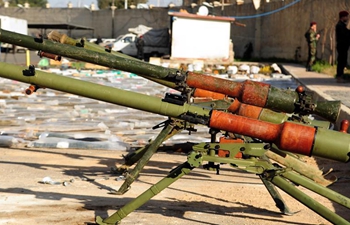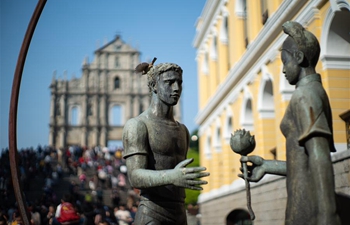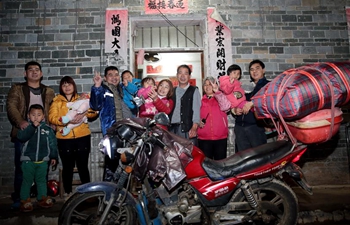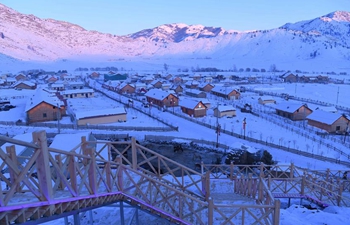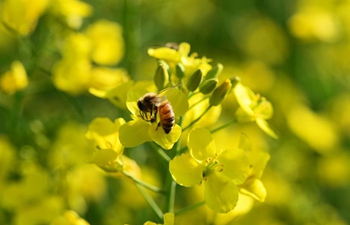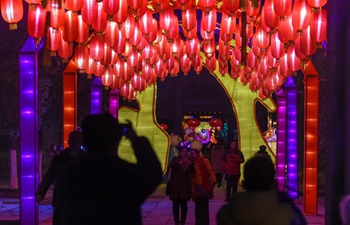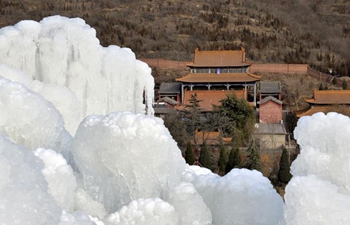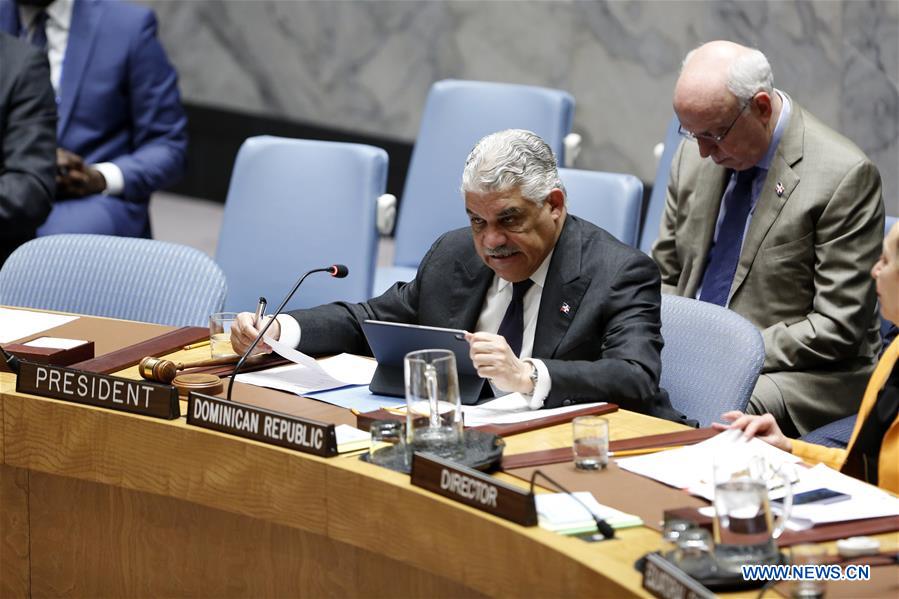
Miguel Vargas(front), Minister for Foreign Affairs of the Dominican Republic and President of the Security Council for the month of January, chairs a Security Council meeting on the situation in Colombia, at the UN headquarters in New York, Jan. 23, 2019. The new UN envoy for Colombia, Carlos Ruiz Massieu, on Wednesday asked the government to define the status of the areas where former combatants of the Revolutionary Armed Forces of Colombia-People's Army (FARC-EP) live before their reintegration. (Xinhua/Li Muzi)
UNITED NATIONS, Jan. 23 (Xinhua) -- The new UN envoy for Colombia, Carlos Ruiz Massieu, on Wednesday asked the government to define the status of the areas where former combatants of the Revolutionary Armed Forces of Colombia-People's Army (FARC-EP) live before their reintegration.
"A near-term challenge is to define the status of the 24 territorial areas, whose current authorization is due to expire on Aug. 15. This is a matter of concern and uncertainty for the thousands of former FARC-EP (combatants) inhabiting these spaces," he told the Security Council.
A solution will require the concerted effort that will involve legal, financial and other implications. Therefore, time is of the essence to arrive at an agreed way forward, said Massieu, who is the secretary-general's special representative and head of the UN Verification Mission in Colombia.
He welcomed the Colombian government's decision in December to extend food distribution to former FARC combatants in the territorial areas for training and reintegration for an additional eight months.
This current food delivery, as well as health and education services and the provision of basic monthly stipends to all former FARC combatants, were set to expire in August.
The Colombian government and FARC struck a peace deal in August 2016 after four years of negotiations in Havana, Cuba, ending a five-decade-long conflict in the country. The UN Verification Mission in Colombia, mandated by the Security Council, is tasked to verify the reintegration of former FARC fighters.
Massieu, who briefed the council for the first time, expressed concern over continued violence in the country, particularly the killing of social leaders and FARC members.
Seven social leaders -- six men and one woman -- were killed in the first seven days of January and a total of 31 attacks in 10 departments were reported since Dec. 26, he noted.
According to government investigations, three-quarters of these killings were committed by criminal and illegal armed groups, he said.
As many as 16 FARC members were killed since Sept. 26, 2018, bringing the total to 87 since the peace agreement was signed, said Massieu.
He stressed the importance of the provision of effective security for new settlements outside the territorial areas, noting that most of the killings have taken place in new settlements.
"The security of communities, leaders and FARC members are ultimately tied to the ability of the state to establish an integrated security and civilian presence in conflict-affected areas," said Massieu.
The government's newly unveiled "peace with legality" plan, which aims to stabilize the areas most affected by conflict, provides a roadmap for achieving this important objective, said Massieu. "What is now urgently required is the translation of this and other plans into effective actions that change the realities on the ground."





